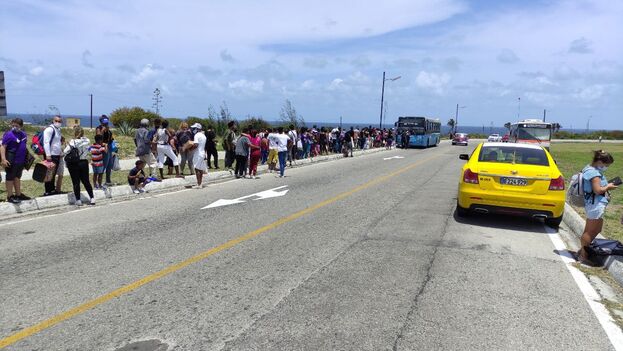
![]() 14ymedio, Juan Diego Rodriguez, Havana, 21 April 2022 — The line this Thursday to take a bus to the fortress of San Carlos de La Cabaña, the venue for the XXX Havana Book Fair (FILH) until April 30, was long and crowded. The wait for transport was almost an hour, as transit is, once again, experiencing a crisis in Cuba.
14ymedio, Juan Diego Rodriguez, Havana, 21 April 2022 — The line this Thursday to take a bus to the fortress of San Carlos de La Cabaña, the venue for the XXX Havana Book Fair (FILH) until April 30, was long and crowded. The wait for transport was almost an hour, as transit is, once again, experiencing a crisis in Cuba.
“This year things are worse than last time,” observed a woman from Havana as she covered herself from the sun with her hand. “There are very few buses.”
During the wait, the visitors were filling the bags they carried in their hands with food. They would eat upon arrival, in the gardens surrounding the fortification, from where one can see, in the distance and with the sea in between, the advanced construction of the so-called “López-Calleja tower” competing for the first time in more than 63 years with the profile of the emblematic Habana Libre hotel.
At the gates of the fairgrounds, the waiting time multiplied: hundreds of people waited in line for up to two hours. “Fortunately there is something cool,” commented an old man with a snort.
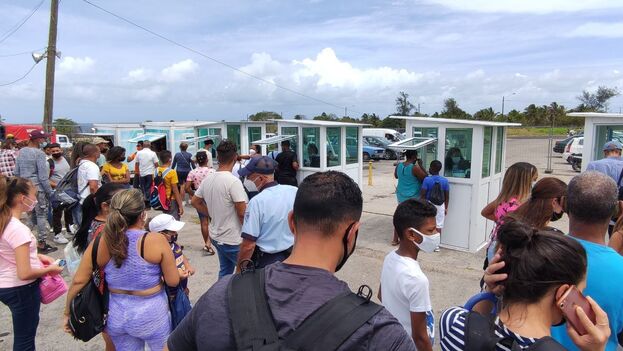
Once inside, visitors milled around and crowded around the counters, but they didn’t buy much. In the first FILH after the launch of the so-called Ordering Task*, complaints about high prices were widespread. Miniature books (ranging from literary classics such as The Little Prince to titles with jokes for adults or self-help) at 650 pesos, glitter at 400 pesos, markers at 1,200 pesos… “Not to mention, even water and soft drinks,” protested a young man who asked about the price of a backpack.
The featured guest country, Mexico, aroused some expectation, judging by the line of people waiting to enter its pavilion, located in room A. However, people left soon, dissuaded by the more than 400 pesos average cost for the books, almost all of them edited by the state publisher Fondo de Cultura Económica.
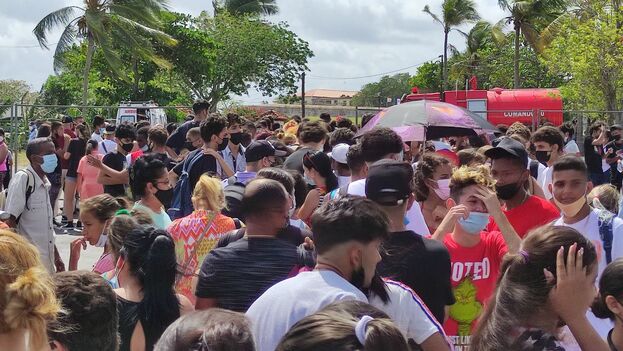
Among the few Mexican private publishers represented were Planeta, Almadía and Sexto Piso, all of them at small tables covered with a precarious table cover and colored “papel picado” – elaborate paper cuts – typical of the traditional Day of the Dead in Mexico.
It was the books of these publishers that were offered at a more accessible price, which was understood by looking at the publication dates: none was new and there were titles from 2012 and 2013. Unsold inventory.
One of them stood out: Commander. The Venezuela of Hugo Chávez , by Rory Carroll from the Sexto Piso publishing house (2013). It is a report that illustrates the rise of authoritarianism in Venezuela and the failure of the social programs of Bolivarism, something that would surprise the Cuban authorities who allowed it to be offered if they knew. Such a thing is doubtful: the two copies on display were closed, and the public passed by when they saw the face of the deceased president.
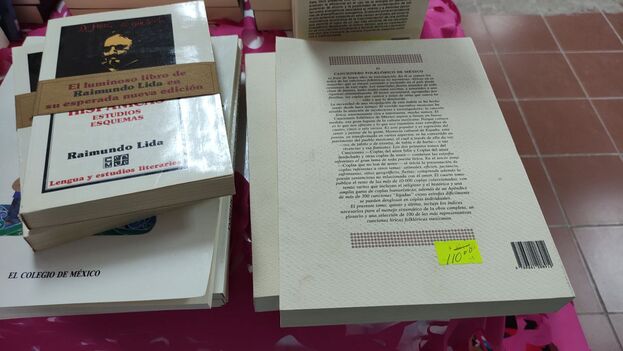
Outside the fairgrounds of La Cabaña, in the Casa Benito Juárez (known as Casa de México), in Old Havana, Paco Ignacio Taibo II, director of the Mexican state publishing Fund for Economic Culture (FCE), presented Nueve noches con Violeta del Río [Nine nights with Violeta del Rio], by Leonardo Padura.
The Havana author was not present in person but he sent a video message from Madrid, where, he said, he is “for work.” In the message he thanked the FCE for the presentation and expressed his wish that the Fair be successful and bring reading closer to the Cuban public.
Taibo, for his part, highlighted the relationship between the two since they met in the International Association of Police Writers in the 1980s and referred to Padura as a “author critical of the Cuban reality that he lives.”
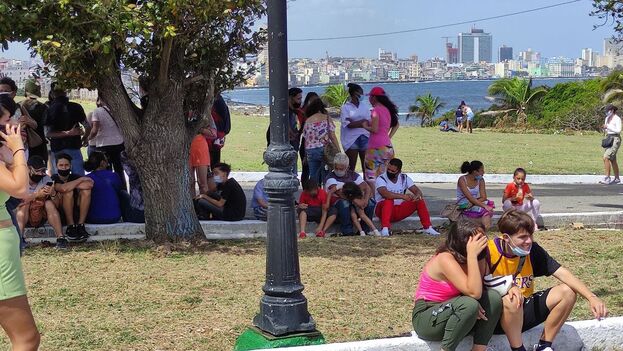
The director of the Fund explained that the new book, which he defined as a “long love story,” will be included in the Vientos del Pueblo collection, a series of books launched by the Mexican state publisher at very low prices (and published at very low quality).
*Translator’s note: Tarea ordenamiento = the [so-called] ‘Ordering Task’ which is a collection of measures that include eliminating the Cuban Convertible Peso (CUC), leaving the Cuban peso as the only national currency, raising prices, raising salaries (but not as much as prices), opening stores that take payment only in hard currency which must be in the form of specially issued pre-paid debit cards, and other measures.
____________
COLLABORATE WITH OUR WORK: The 14ymedio team is committed to practicing serious journalism that reflects Cuba’s reality in all its depth. Thank you for joining us on this long journey. We invite you to continue supporting us by becoming a member of 14ymedio now. Together we can continue transforming journalism in Cuba.
